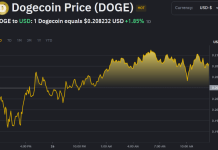With institutional investors and countries taking an interest in crypto, is the industry near mainstream adoption?
In recent years, several crypto-assets have transitioned from being on the outskirts of financial services to some types becoming more mainstream like btc price prediction and shiba inu price prediction. Unsurprisingly, there has been a surge in global regulatory attention, focused on intensifying efforts to ensure investor and economic security. Even though blockchain technology has been in use (and in the public discourse) for over a decade, it’s still accurate to compare its progress to the early days of the internet. While the winds of change are blowing in favor of crypto going mainstream, several roadblocks stand in the way of widespread mainstream usage.
But while there will be challenges in acceptance and utility along the way, blockchain’s path to imminent mass adoption closely mirrors the innovation cycles of past technologies with humble, then astronomical trajectories.
What does mainstream adoption mean?
Mainstream adoption simply means widespread acceptance and integration of cryptocurrencies into daily life. Think of it like the early days of the internet, when high connection costs limited internet access to a select few. Now, the internet is an indispensable tool woven into the fabric of everyday life.
Today’s online banking experience still retains many annoying artifacts of the pre-internet era. While some friction is due to security concerns, most delays and expenses are rooted in legacy fee structures and brick-and-mortar holidays and schedules. Many legacy banks don’t process transactions on “bank holidays,” as if there is a clerk behind a curtain somewhere who has the day off. Companies that process payroll for clients profit from introducing an artificial lag between receiving payroll from their clients and distributing it to employees. Banks still charge high fees for currency conversion and cross-border payments.
The journey towards mainstream crypto adoption in the US is well underway. While significant challenges remain, positive signs indicate a growing public interest and a maturing market. By addressing volatility, fostering clear regulations, enhancing security, and prioritizing user education, the crypto industry can pave the way for broader acceptance and integration into everyday life.
Imagine a world where domestic and cross-border payments are processed instantly for free or very low fees. No more waiting for your direct deposit to arrive on a Monday, even if they initiated the transaction on a Friday or before a bank holiday. Today blockchain technology sits at the brink of a new era where that is possible.
As the fintech industry moves forward, businesses, policymakers, and builders will increasingly search out responsible, interoperable, and secure blockchains that have a proven ability to scale and meet the needs of millions worldwide who will be using it daily. Most importantly, we can build a more transparent, efficient, and inclusive digital world in the process.
Disclaimer: This article contains sponsored marketing content. It is intended for promotional purposes and should not be considered as an endorsement or recommendation by our website. Readers are encouraged to conduct their own research and exercise their own judgment before making any decisions based on the information provided in this article.



































